Dehumanising Palestinians: Israel’s rhetoric for genocide
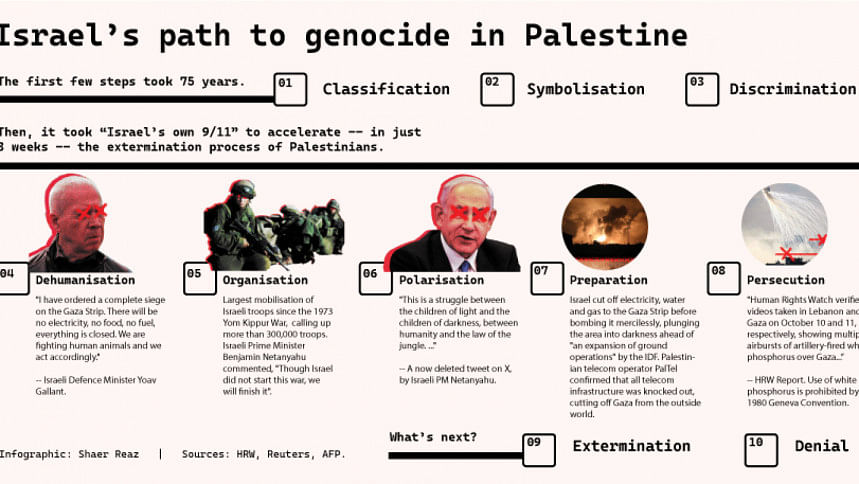
A real genocide is unfolding in the Gaza Strip, with over 8,000 civilians, including 3,000 children and 2,000 women, being strategically massacred. Essential commodities like fuel, electricity, water, have been cut off while the area has been facing a near-total communications blackout. On Saturday, Israeli forces launched a ground invasion in Gaza. Undergirding the unprecedented warfare lies a rationalising rhetoric used by the Israeli government, with the US backing, which seeks to dehumanise Palestinians.
Israel's dehumanisation narrative explained
Dehumanisation is a phenomenon of depriving people of positive human qualities, treating them as less than human. Dehumanisation enables people to morally disconnect from the suffering of others. History shows this in the Nazis' portrayal of Jews, Romas, and others as "sub-human" and colonisers' portrayal of native populations as "savage." Kenneth Burke's 1939 article, "The Rhetoric of Hitler's 'Battle,'" highlights the dangers of this manipulative rhetoric. Israel's recent echoes of such historical vilification.
Following a discredited report about "40-beheaded babies," Israeli President Isaac Herzog presented a document during a televised interview, alleging it proved Hamas's similarity to Al Qaeda and intentions to produce chemical weapons. However, social media users exposed Herzog's document as a page from a 2010 al-Qaeda book available online.
Israeli Prime Minister Benjamin Netanyahu went a step further. Before the massive Israeli airstrike that instantly killed 500 in the Al-Ahli Baptist Hospital, Netanyahu labelled Palestinians as "children of darkness" in a tweet. In the Israeli Knesset, Netanyahu framed the conflict as a struggle between the "children of light and the children of darkness," promising victory to the Israelis as the children of light. While he retracted the tweet after the airstrike, perhaps to dissociate from the tragedy, it couldn't undo the loss of lives.
In a recent speech, Netanyahu likened Palestinians to "Amalek," citing 1 Samuel 15:3: "Now go and smite Amalek, and utterly destroy all that they have... slay both man and woman, infant and suckling, ox and sheep, camel and ass." Historically, Amalekites attacked Israelites. Netanyahu's biblical invocation amplifies the perceived threats to Jews, echoing past tensions.
Netanyahu's annihilation rhetoric emboldens the dehumanising language of other Israeli leaders, such as Israeli Defense Minister Yoav Gallant. Announcing a complete siege of Gaza, restricting electricity, food, water, and fuel, he stated, "We are fighting human animals and we are acting accordingly."
Joe Biden's adoption of Israeli dehumanising narratives
In wartime scenarios, strategic rhetoric has historically been misleading, as its primary goal is to psychologically win wars. Hence, people tend to view wartime statements with scepticism. Amidst the Israel-Gaza conflict, President Joe Biden provided unprecedented political support to Israel. He readily accepted Israel's reported death toll without doubt. Without verification, Biden had said he had seen "confirmed" images of "terrorists beheading children," and later a statement from the White House backtracked it. In contrast, he expressed reservations about the mostly live-televised Palestinian death toll, remarking, "I'm unsure if Palestinians are truthful."
In response to Joe Biden's questioning, the Palestinian Health Ministry released names and images of their citizens killed by Israel's indiscriminate bombing. Critics suggest Biden's approach "dehumanises" Palestinians, especially as his administration opposes investigations into potential Israeli war crimes. Israel restricts media access to Gaza, but organisations such as the UN and Human Rights Watch confirm the accuracy of Palestinian reports. Yet, Biden's high officials are playing Nero while the US-funded Israel bomb-rains turn Gaza into ashes.
Biden's bias against the Palestinians is deeply culturally rooted in the West. They inherently trust the Israelis even when they may be lying, and that Palestinians may be lying even when presenting their ultimate truths about life and death. A Jewish woman's viral commentary suggests that Western media and education have taught them to view Israelis as white and thus human; while seeing Palestinians as non-white, making them unworthy of trust as humans. This sentiment reflects a broader unconscious prejudice rooted in racism in the West.
Grassroots Challenging Israeli Narratives on Social Media
Globally, Israel's hegemonic narrative is facing intense scrutiny, particularly on social media. This digital realm has become a vibrant space for a growing grassroots movement to counter Israel's hegemonic accounts, revealing misinformation and bias.
While mainstream western media can present a skewed portrayal, digital grassroots efforts are pushing back. An increasingly globalising sentiment is showing solidarity with Palestinians, both through street protests and online activism, drawing uncomfortable comparisons between Nazi atrocities and Israel's high-tech carnage in Gaza.
Remarkably, a vast number of anti-Zionist Jews are dissociating their religion from Israel's actions. Phrases like "Never Again is now" and "Not in my name" resound in protests, showing their solidarity with Palestinians.
Israeli Voices Rejecting the Official Revenge Sentiment
In the wake of the October 7 Hamas attack, Guy Hochman, an Israeli reserve soldier, epitomised Israel's official revenge sentiment, stating: "there is only one goal: to take revenge and to be cruel." This sentiment is now receiving pushback from within Israel itself.
Recently, Israelis have also taken to the streets of Tel Aviv to demand a ceasefire after Netanyahu vowed it will be a "long and difficult war."
Many Israelis, directly affected by the conflict, reject the revenge narrative. They don't want revenge and highlight the need for peaceful dialogue. Noi Katsman, grappling with her brother's demise, urged, "not to use our deaths...to cause the death and pain of other people." Survivor Ziv Stahl penned, "I have no need for revenge," highlighting the need for introspection. Yotam Kipnis, reflecting on his father's tragic fate, remarked, "Do not write my father's name on a [military] shell," emphasising the dignity of memory. Maoz Inon, who lost both parents, poignantly stated, "Revenge is not going to bring my parents back to life." Such voices underline the growing demand for peace, understanding, and respect for the wishes of the bereaved.
Moreover, narratives challenging the dominant narratives that demonised Hamas with the tropes of "terrorism" and "savagery" have surfaced. Elderly Israeli hostages, Narit Cooper and Yitz, recounted unexpected acts of compassion during their captivity by Hamas. During her public release, Yitz showed an unexpected gesture of gratitude during her televised release, reaching back and saying "Shalom" to one of her captors.
In another instance, an Israeli woman described a surprising encounter to the UK-based Middle East Eye, where Hamas fighters who entered her residence reassured her with words: "Don't worry, I am a Muslim; we will not hurt you," and one even asked for permission to eat a banana. Such accounts challenge the mainstream depiction of Hamas in Israel.
Wars, as UNESCO states, begin in the minds of men. Israel's rhetoric of dehumanisation serves to rationalise an industrial scale of genocide against the people of Gaza. It's a perilous path, leading only to further violence, strife and death of innocent civilians. While the current situation between the US, Israel and Palestinians is complex, one fact remains clear: dehumanising rhetoric only deepens divisions and forestalls meaningful dialogue.
It is vital for global citizens, aided by platforms like social media, to sift through this rhetoric, challenge falsehoods, and advocate for a more compassionate and peaceful approach to resolving conflicts.
Mohammad A. Auwal is Professor of Communication Studies at California State University, Los Angeles.
We welcome your contributions and analysis of global events. To submit articles to our new page, Geopolitical Insights, please send us an email at [email protected] or [email protected]

 For all latest news, follow The Daily Star's Google News channel.
For all latest news, follow The Daily Star's Google News channel. 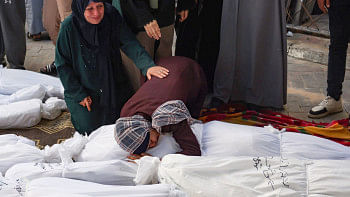
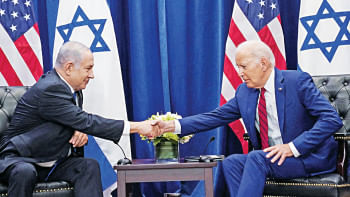



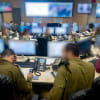

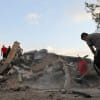


Comments